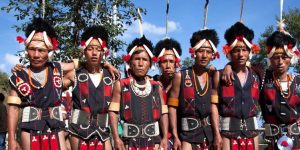Register Of Indigenous Inhabitants Of Nagaland (RIIN):

An apex body of Naga tribes has asked the Nagaland government not to be hasty with the exercise to prepare the Register of Indigenous Inhabitants of Nagaland (RIIN), seen as a variant of Assam’s National Register of Citizens.
- The Nagaland government has reportedly been trying to revive the RIIN exercise that was launched in July 2019 with the stated objective of preventing outsiders from obtaining fake indigenous certificates for seeking jobs and benefits of government schemes.
- The State government had formed a three-member panel headed by retired bureaucrat Banuo Z. Jamir for “examining and advising” on the implementation of RIIN.
- The State government had tasked the RIIN committee with determining the eligibility criteria to be an indigenous inhabitant, authority to authenticate claims of being indigenous, place of registration as an indigenous inhabitant, the basis of claims of being indigenous, and the nature of documents that will be accepted as proof.
- But the exercise was suspended following protests from community-based and extremist organizations.
- If the RIIN is implemented with December 1, 1963 – the day Nagaland attained statehood – as the cut-off date, then this date is likely to exclude Nagas who have come from beyond the boundaries of Nagaland.
- According to the Naga Hoho, Naga tribes living in Assam, Manipur, and Arunachal Pradesh in India and in Myanmar have a legitimate claim to their ancestral homeland.




